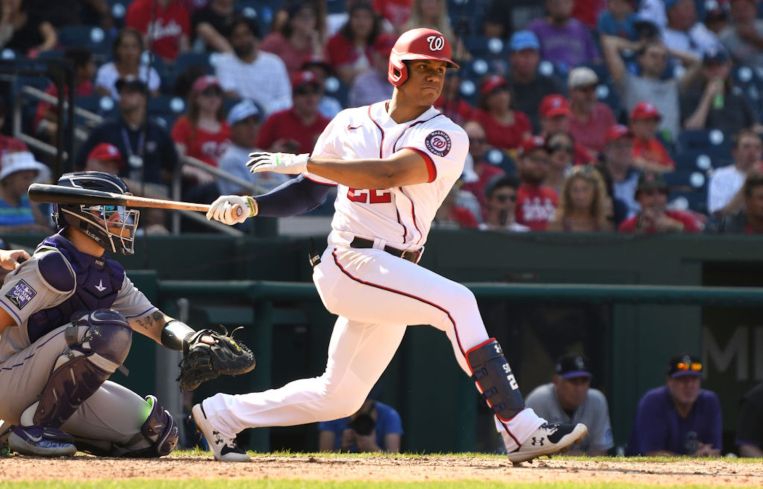Will Cancelation of MLB Games Impact Capitol Riverfront Businesses?
Even with a deal in place, the lingering effects of the lockout may hurt area businesses
By Keith Loria March 10, 2022 3:54 pm
reprints
Baseball will be back!
When Major League Baseball’s owners locked out its players in December 2021, it was widely believed that a new collective bargaining agreement would come together quickly, and a deal would be in place with plenty of time for spring training games to begin on time.
But both MLB and the Major League Players Association were very vocal about their frustrations about the other side not willing to compromise, and the constant bickering and back-and-forth of unappealing offers caused MLB Commissioner Rob Manfred to cancel the first week of the season.
More games were canceled Wednesday when the two sides failed to reach an agreement by an artificial deadline MLB set the previous week, but it’s believed that those games will be rescheduled as double headers or on off days.
But even with the news Thursday that the two sides have reached an agreement, those lost games are still bad news for Capitol Riverfront retail businesses at the Navy Yard, who had expected fans attending Washington Nationals games at Nats Stadium in April to bring some much-needed revenue to the area.
The Philadelphia Phillies were set to come to town for a three-game series April 4, with the New York Mets following or a four-game slate starting April 7. But now, the team’s first home games aren’t scheduled until April 14.
Plus, the fighting between the two sides seemed to irk many fans, who may have less interest in spending their money in MLB parks this season.
“We know that baseball has an impact, because we saw it in 2020,” Bonnie Trein, vice president of operations and chief of staff for Capitol Riverfront BID, told Commercial Observer.
Retailers and restaurants saw a $120 million drop in 2020 in revenue typically generated by sports and entertainment activity as a result of the pandemic, according to an internal study conducted by Capitol Riverfront BID.
Still, the Capitol Riverfront remains a popular area for apartment developments, with more people in the area than ever before. There are about 16,500 residents and 12,000 apartment units in Capitol Riverfront, according to Trein.
“We know the hyper-local support of the residential community here has contributed to the resiliency of neighborhood restaurants over a rough past two years,” she said. “When baseball was delayed in 2020, things looked a lot different.”
In the first year of the pandemic, eight retail establishments closed, and another two followed suitthe following year. But another dozen have since opened, with more restaurants and retail shops on the way this spring and summer.
“Capitol Riverfront has seen different metrics and numbers throughout these last two years than other neighborhoods in the city and even the country, which we attribute to this net gain from our growing residential community,” Trein said.
That’s keeping those around Nationals Park in business.
“I think they will continue to be creative and optimistic and we as a BID, along with the restaurants, will of course miss the excitement of baseball in that first part of April and opening day,” Trein said. “But as Capitol Riverfront is a more mature neighborhood now, there’s more than baseball and restaurants, and relying on more than just baseball fans. I have not heard any worrisome feedback yet.”
The CBA must still be ratified by both sides before it becomes official, but that’s believed to be just a formality. Once it happens, Spring Training camps are expected to open on Sunday, bringing the three-month lockout to a close.
Keith Loria can be reached at Kloria@commercialobserver.com.



